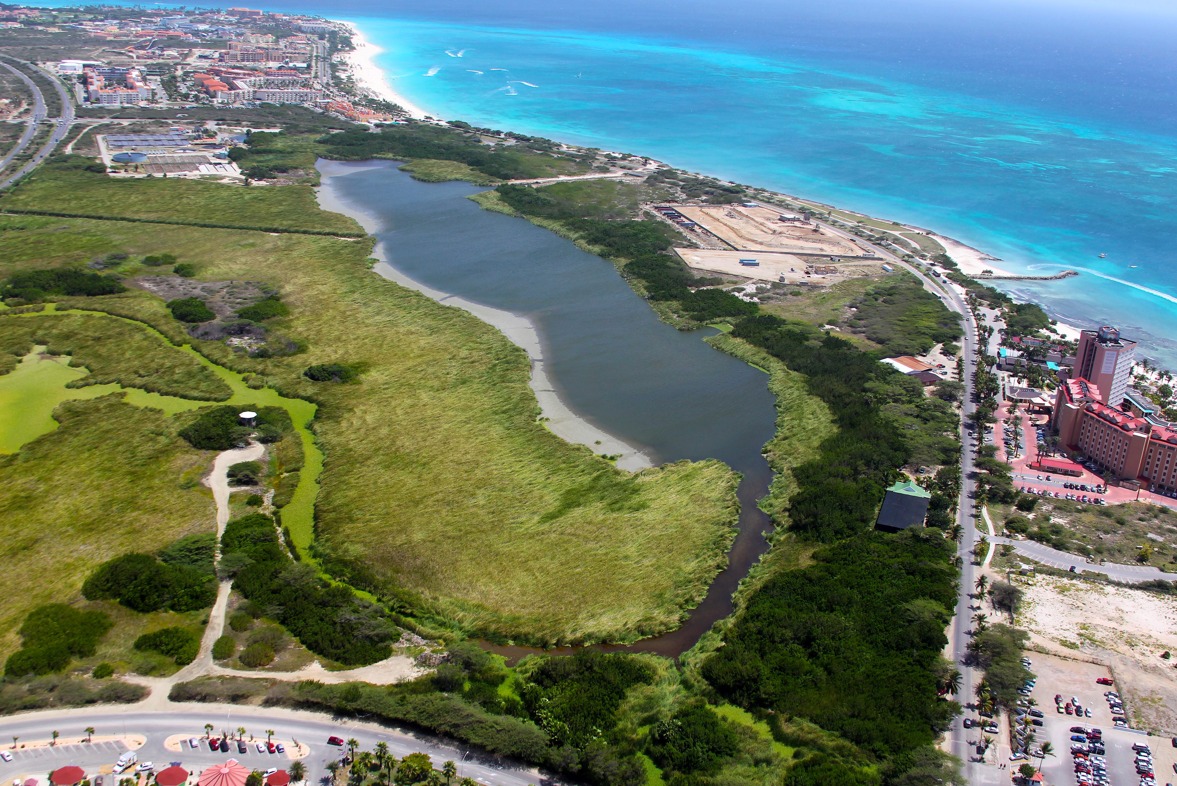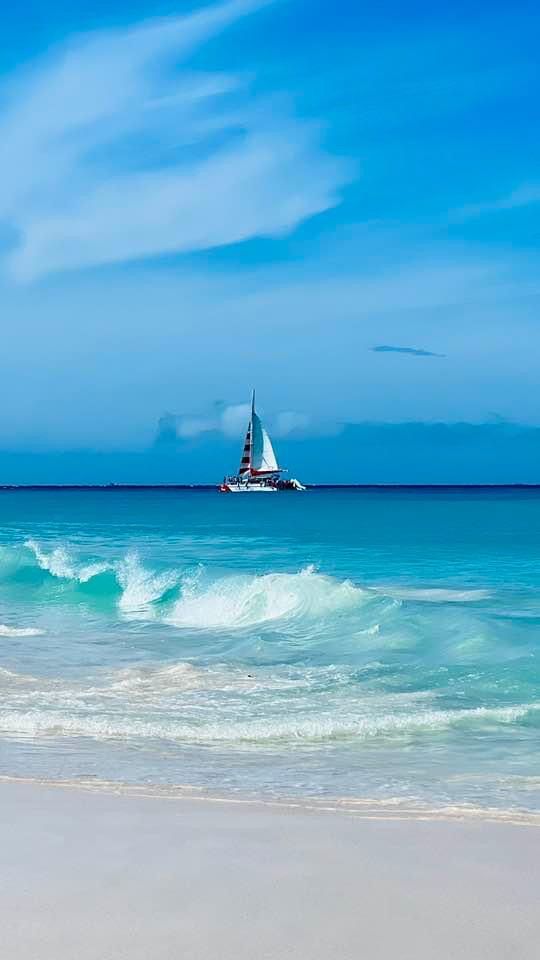Aruba’s Sewage Crisis: The (Dutch) Way Forward
Introduction
Yes, yes, yes….. Aruba is known for its pristine beaches, fancy hotels, friendly people, and the rest of the catchy buzzwords and one-liners that make us sound so good. By that same token, in other circles, we are known for carrying budget deficits, an oversized payroll, nepotism, corruption, lots and lots of debt, and for not complying with the agreements we make with the Dutch Government. No wonder many in the Netherlands would rather see us leave the Dutch Kingdom and deal with our drama. After all, many believe we can survive on our (misplaced) pride only. Yet many of our leaders fail to see or choose to ignore the power of the Dutch Kingdom, the knowledge and experience of the Dutch Kingdom, and the synergy that exists between the various states within the Dutch Kingdom. This week, I will share some views on a stinky subject: the big sewage disposal disaster in our hotel area. Aruba is grappling with a persistent issue threatening its status as a top tourist destination and the health of our people. The problem is the inadequate sewage disposal system near the hotels. I have covered this subject in two of my previous columns. This situation is growing increasingly dire, with tourists voicing escalating complaints about the stench and a lack of sustainable solutions on the horizon. In this article, I will focus on Aruba’s challenges and express doubts about the government’s ability to manage the issue, given its historical failures in taking charge and resolving these problems. I will also suggest that this sewage disaster is a prime example of where we should be reaching out to our partners in the Dutch Kingdom for assistance. The Netherlands daily deals with much more wastewater than we do. They also are the global; champions of water management. If we can’t solve it I am sure they can.
Background
In my first column, titled “One Stinky Island: The Battle of the Stench” (LinkedIn). I shed light on the alarming state of Aruba’s sewage disposal system, highlighting the unpleasant odors that permeate certain areas near our hotels. This issue poses a significant threat to the island’s tourism industry and raises serious environmental concerns. In she second column, “Stench-Free Sewage or a Business Case,” (LinkedIn), I delved into potential solutions, emphasizing the importance of finding a sustainable approach that eliminates the stench and aligns with the island’s economic and environmental goals. However, the problem persists despite discussions, and tourists are becoming increasingly frustrated.
The Escalating Tourist Complaints
Tourism is the lifeblood of Aruba, contributing significantly to its economy and livelihood. However, the ongoing sewage disposal problem tarnishes our pristine reputation and adversely impacts the tourist experience. Visitors, expecting an idyllic tropical getaway, are instead met with unpleasant odors near the hotels, resulting in a surge of complaints. Not a day goes by that the tourists don’t complain about the stench. The hotel closer to the sewage plant, Bubali Plas, must be getting many earfuls from tourists who pay their hard-earned money to come to Aruba and are overwhelmed with that unexpected fecal aroma. Tourists have taken to various online platforms to voice their dissatisfaction, leaving negative reviews and dissuading potential visitors from choosing Aruba as their vacation destination. This escalation in complaints damages the island’s tourism industry and jeopardizes local businesses and employment opportunities. We have already experienced what happened to our economy during COVID-19 when the tourists didn’t come to the island.

Lack of Sustainable Solutions and Historical Failures
The doubts about the government’s ability to manage the sewage disposal problem stem from historical failures. Despite the gravity of the situation, Aruba has yet to introduce a comprehensive and sustainable solution. The lack of a clear strategy addressing the issue on multiple fronts, including financial, commercial, and environmental aspects, exacerbates the problem. Sustainability is important nowadays, but past inaction and neglect raise concerns about whether the government can effectively lead in resolving this crisis. The historical pattern of neglecting infrastructure and failing to take charge of pressing issues calls into question the government’s ability to deliver on its promises and ensure a better future for Aruba. I hear solutions are being worked on, but these are behind closed doors and kept away from the general public as if it is a state secret. Why is it a state secret that this crisis affects the entire community? Why aren’t stakeholders involved? If the ocean is fine, why don’t the ministers responsible go with the press core where the sewage water overflows into the ocean and take a nice swim and show off their snorkeling skills?
The (Dutch) Way Forward
While doubts linger about the government’s ability, Aruba’s authorities must take proactive steps and, where necessary, engage with other stakeholders to prioritize the development of a sustainable sewage disposal system. We must avoid devising bureaucratic plans that burden hotels, tourists, or the local community. This entails substantial investments in infrastructure upgrades, adopting innovative technologies, and implementing stringent regulations to prevent further contamination. We can explore partnerships with international organizations or seek expertise from countries that have successfully tackled similar issues and can provide invaluable insights and guidance. But we do need someone in charge who can tackle this; we need someone who has done this before and knows how to master this art.
We need not look very far; last time I checked, we were still part of the Dutch Kingdom, and the Dutch are known for their continuous research and innovation in water management. The Dutch model of wastewater management is considered one of the most advanced and sustainable in the world, combining technological innovation, environmental sustainability, and public involvement. Let me use one example. A quarter-century since its inception in the laboratory of Mark van Loosdrecht at TU Delft, the Nereda® technology, renowned for its innovative approach to wastewater treatment, is marking a significant milestone with the near completion of its 100th plant. This groundbreaking technology has seen global adoption, with installations stretching from Brazil to Sweden and South Africa to the United States. Nereda® plants stand out for their biological treatment process, which is both energy-efficient and environmentally friendly. They consume up to 50% less electricity than traditional sewage treatment facilities and minimize or sometimes eliminate the need for chemical usage. The 100th plant milestone was published in March of 2023. Here in Aruba, we need one (1) plant to fix the Bubali Plas drama and perhaps two (2) more to purify the sewage being let go to sea in other island areas. I would be surprised if the Nereda® plants would not solve our problem, but even if it is not, this is just one solution available out there. Our sewage (read: our poopoo) can’t be that special or different from the rest of the world. The success of Nereda® is a testament to this dedication, showcasing the Netherlands’ leading role in pioneering advanced solutions for wastewater management. Despite historical doubts, Aruba can effectively find practical and sustainable solutions to tackle the sewage disposal problem by leveraging knowledge and resources from various sources.
Pipeline
Word has it that a solution is in the pipeline – no pun intended. I am unsure if the solution exists or is like the Ligness Monster. If the GoA has developed a technical solution and a method of financing the investment and operation, it would be a positive development. If there is a plan, the question is how the bureaucracy will tackle this and whether this plan will materialize. If laws need to be passed, how long it will take to get to the parliament, and if parliament prioritizes this matter.
Conclusion
As Aruba confronts the vexing issue of inadequate sewage disposal, it becomes increasingly clear that relying solely on local governance, marked by historical inefficiencies and secrecy, may not be sufficient. The escalating tourist complaints and the potential threat to our critical tourism industry underscore the urgency of finding a sustainable, effective solution. The situation at Bubali Plas is not just an inconvenience; it’s a looming crisis threatening Aruba’s appeal as a tourist haven. The government’s pattern of inaction and opacity, especially in the face of such a dire environmental and commercial challenge, calls for a radical rethinking of our approach. The solution to this problem should not be shrouded in secrecy but should involve transparent collaboration with stakeholders, including the community whose livelihood depends on the health of our tourism industry.
In seeking a way forward, Aruba need not reinvent the wheel. The Dutch Kingdom, of which we are a part, offers a reservoir of knowledge and proven expertise in water management. The Netherlands, recognized globally for its advanced wastewater management systems like the Nereda® technology, provides a blueprint for addressing our sewage woes. The success of Nereda® across the globe, including in environments similar to ours, is a testament to the efficacy of Dutch innovation in this field. Aruba’s situation may require a tailored solution, but the principles of efficiency, sustainability, and community involvement underpin Dutch water management systems are universally applicable. Leveraging this expertise can solve the immediate issue at Bubali Plas and set a precedent for handling similar environmental challenges.
The time for closed-door deliberations and delayed action is over. Aruba must embrace a more open, collaborative approach, drawing on the wealth of experience within the Dutch Kingdom. By doing so, we can safeguard our environment, protect our vital tourism industry, and ensure a healthy, stench-free experience for residents and visitors alike. This is not just about fixing a sewage problem; it’s about preserving the beauty and viability of our beloved island for generations to come. But we must learn to put our pride aside, accept the much-needed help, or grow up and take responsibility.















